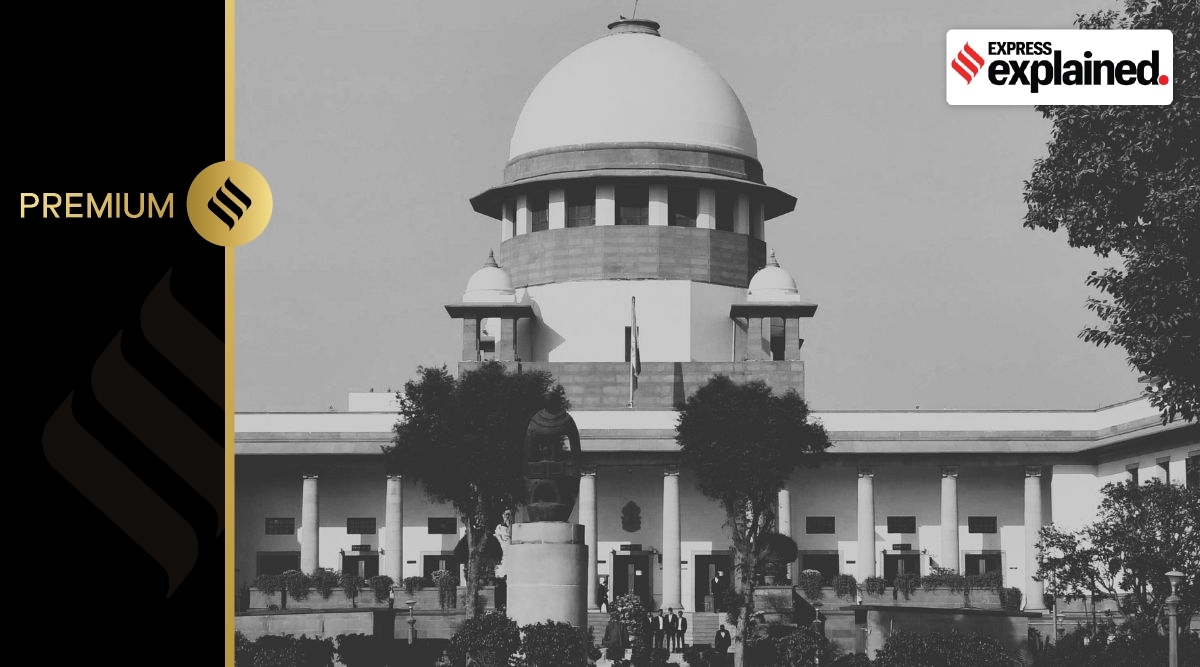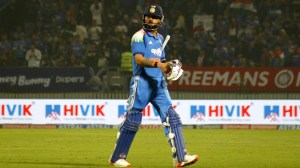Do SC, HCs judges vacation too much? Here’s the debate, and the facts of the situation
A parliamentary panel has recommended that High Court judges take turns going on vacation to tackle the mounting pendency of cases. This is an old debate — and even with its summer, winter, and festival vacations, the SC sits for longer than top courts in many other countries
 In 2022, CJI D Y Chandrachud announced that no vacation benches would sit during the Supreme Court’s winter vacation. (Express file photo by Amit Mehra)
In 2022, CJI D Y Chandrachud announced that no vacation benches would sit during the Supreme Court’s winter vacation. (Express file photo by Amit Mehra) Terming court vacations a “colonial legacy”, a parliamentary panel has recommended that High Court judges take turns going on vacation to tackle the mounting pendency of cases.
“For reducing pendency, there is a need to have a multi-pronged strategy. However, at the same time, it is an undeniable fact that vacations in the judiciary are a ‘colonial legacy’ and…entire court going on vacation en masse causes deep inconvenience to the litigants,” the Parliamentary Standing Committee on Personnel, Public Grievances, Law and Justice has said.
What is this report and what does it say?
In its 133rd report, “on the subject of judicial processes and their reforms”, the parliamentary panel headed by BJP MP Sushil Kumar Modi, reiterated a suggestion made by former Chief Justice of India (CJI) R M Lodha on court vacations earlier.
“…The Committee is of the view that the suggestion of…Shri R M Lodha on court vacations, that instead of all the judges going on vacation, all at one time, individual judges should take their leave at different times through the year so that the courts are constantly open and there are always benches present to hear cases,” the report said.
The demand for doing away with court vacations is primarily due to two factors, the report says: one, the “huge pendency of cases in our courts”, and two, the inconvenience faced by the litigants during court vacations.
“A common man holds a perception that despite having such huge pendency of cases, their judges go on long vacations. Further, during the vacations, the litigants have to suffer a lot despite having a handful of vacation courts/ benches,” the report said.
The report has recorded that the “Department of Justice has stated that court vacations particularly summer vacations spanning 7 weeks (10 weeks prior to 2013) are customary practice continuing from colonial days”, and that the “vacations of Supreme Court and High Courts need to be relooked in a holistic way vis-à-vis the present practice in the higher courts of other countries as well as other constitutional institutions in the country and also in the context of existing huge pendency of arrears of cases and increased volume of fresh cases being instituted on regular basis”.
Is this the first time that the Centre has expressed such a view?
The central government has brought up the issue of court vacations earlier too. On December 15, 2022, then Law Minister Kiren Rijiju criticised the judiciary for taking long vacations even as pending cases hit record levels every year.
Responding to questions relating to pendency, Rijiju told Rajya Sabha that the problem cannot be resolved until a “new system” on the appointment of judges was put in place.
He also said that “there is a feeling among people of India that the long vacation which the courts obtain is not very convenient for justice-seekers”, and that it is his “obligation and duty to convey the message or sense of this House to the judiciary”.
A day later, CJI D Y Chandrachud announced that no vacation benches would sit during the Supreme Court’s winter vacation.
The government is learned to have requested High Courts to fix the period of vacations to ensure that courts functioned for at least 222 working days. However, the parliamentary panel found that High Courts functioned for only 210 days on average.
Before this, in 2014, when the Supreme Court notified its new Rules, it said that the period of summer vacation shall not exceed seven weeks, as compared to the earlier 10-week period. This came after the Law Commission’s 230th Report and the Malimath Committee Report made similar suggestions.
And what did these two reports recommend?
In 2009, the Law Commission, in its 230th report on ‘Reforms in the Judiciary – Some suggestions’, suggested that court vacations be cut down by 10-15 days at all levels of the judiciary to help cut the backlog of cases.
Before that, in 2000, the Atal Bihari Vajpayee government appointed a “Committee on Reforms of Criminal Justice System” under Justice V S Malimath, former Chief Justice of the Karnataka and Kerala High Courts, which in its report submitted in 2003, recommended that the period of vacation should be reduced by 21 days, keeping in mind the long pendency of cases.
The Malimath Committee suggested that the Supreme Court should work for 206 days, and the High Courts for 231 days every year.
For how long do Indian courts go on vacation currently?
The Supreme Court has 193 working days a year for its judicial functioning, the High Courts function for approximately 210 days, and trial courts for 245 days.
High Courts have the power to structure their calendars according to the service rules.
The Supreme Court breaks for its annual summer vacation, which is typically for seven weeks starting at the end of May. The court reopens in July.
The Supreme Court also takes week-long breaks for Dussehra and Diwali, and two weeks at the end of December.
Despite the vacations, however, the Supreme Court has many more working days compared to the highest courts in other countries. For instance, the United States Supreme Court sits for 79 days with no oral arguments scheduled for a few months in between. The apex courts in Australia, the United Kingdom, and Singapore sit for a total of 97, 189, and 145 days respectively.
What happens to important cases during court vacations?
Generally, a few judges are available to hear urgent cases even when the court is in recess. “Vacation Benches” comprising two or three judges hear important cases that cannot wait. Cases such as bail, eviction, etc., often find precedence in listing before vacation benches.
It is also not uncommon for courts to hear important cases during vacations.
For example, in 2015, a five-judge Bench of the Supreme Court heard the challenge to the constitutional amendment setting up the National Judicial Appointments Commission (NJAC) during the summer vacation.
In 2017, a Constitution Bench led by then CJI J S Khehar held a six-day hearing in the case challenging the practice of triple talaq during summer vacation.
- 011 day ago
- 021 day ago
- 031 day ago
- 041 day ago
- 051 day ago






































